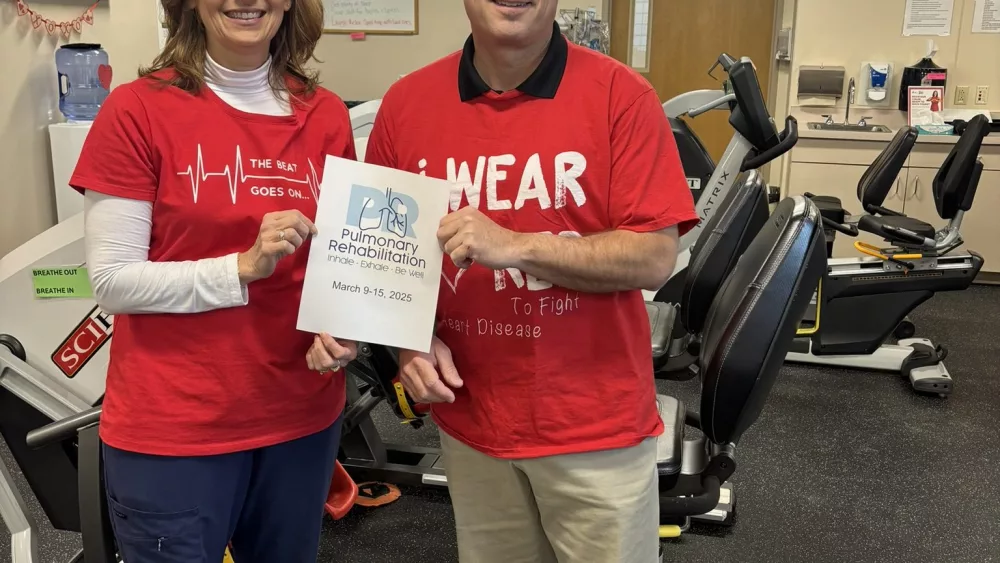
MILWAUKEE – (November 19, 2024) – Today, the American Lung Association released its 2024 “State of Lung Cancer” report, which examines key indicators to highlight how the toll of lung cancer varies by state. Lung cancer is the leading cause of cancer deaths in Wisconsin and across the U.S. This year’s report reveals mixed news for the state with Wisconsin’s rate for new lung cancer cases ranked higher than the national average, while the state is ninth in the nation for cases diagnosed at an early stage with a rate also higher than the national average.
Here’s how Wisconsin ranked in key categories:
- 28 out of 49 in the nation for rate of new lung cancer cases at 56.2 per 100,000. The national rate is 53.6 per 100,000.
- 16 out of 47 in the nation for survival at 29.4%. The national rate of people alive five years after a lung cancer diagnosis is 28.4%.
- 9 out of 47 in the nation for early diagnosis at 29.5%. Nationally, only 27.4% of cases are diagnosed at an early stage when the survival rate is much higher.
- 12 out of 51 in the nation for lung cancer screening at 19.2%. Lung cancer screening with annual low-dose CT scans for those at high risk can reduce the lung cancer death rate by up to 20%. Nationally, only 16% of those at high risk were screened.
- 14 out of 47 in the nation for surgery at 21.8%. Lung cancer can often be treated with surgery if it is diagnosed at an early stage and has not spread. Nationally, 20.7% of cases underwent surgery.
- 11 out of 47 in the nation for lack of treatment at 17.5%. Nationally, 20.9% of cases receive no treatment.
The report also found that Indigenous People in Wisconsin are most likely to be diagnosed with lung cancer, with Black Americans also encountering significant disparities in each category that was evaluated. Overall, the “State of Lung Cancer” report reveals positive news. Nationally, the lung cancer survival rate has improved 26% in the last five years due to increased awareness and advancements in detection and treatment. The report shows Wisconsin must focus on increasing access to lung cancer screening, early detection initiatives and biomarker testing to save lives. It also presents opportunities for Wisconsin to further improve survival by increasing access to lung cancer screenings, which can detect the disease at an earlier stage when its more curable, and biomarker testing which can help influence treatment options because not all lung cancers are the same. “Lung cancer is a devastating disease and impacts far too many families in Wisconsin. To address the burden of lung cancer and to help improve the lives of people it impacts, we must continue to evaluate the greatest needs. This report helps us prioritize which areas to focus on to truly make an impact,” said Molly Collins, Director of Advocacy for the American Lung Association. “This year’s ‘State of Lung Cancer’ report shows that Wisconsin must focus on preventing new lung cancer cases. Together, we can make a difference.” New this year, “State of Lung Cancer” examines health insurance coverage requirements of comprehensive biomarker testing across the U.S. Lung cancer biomarker testing sometimes referred to as tumor, molecular, genomic or genetic testing, looks for changes in the tumor’s DNA. The results of the test may show biomarkers that can help determine what treatment options would be best for an individual patient. Insurance coverage of biomarker testing is important for removing a cost barrier to people with lung cancer, but coverage for biomarker testing is only required in some states. The report found that Wisconsin does not require insurance coverage of comprehensive biomarker testing. The 2024 “State of Lung Cancer” report highlights opportunities for states and the federal government to reduce the burden of lung cancer and encourages everyone to help end lung cancer. This year, the American Lung Association calls for the state to implement policies to require insurance coverage of comprehensive biomarker testing. The Lung Association also calls on Congress to pass the Increasing Access to Lung Cancer Screening Act (H.R. 4286).







